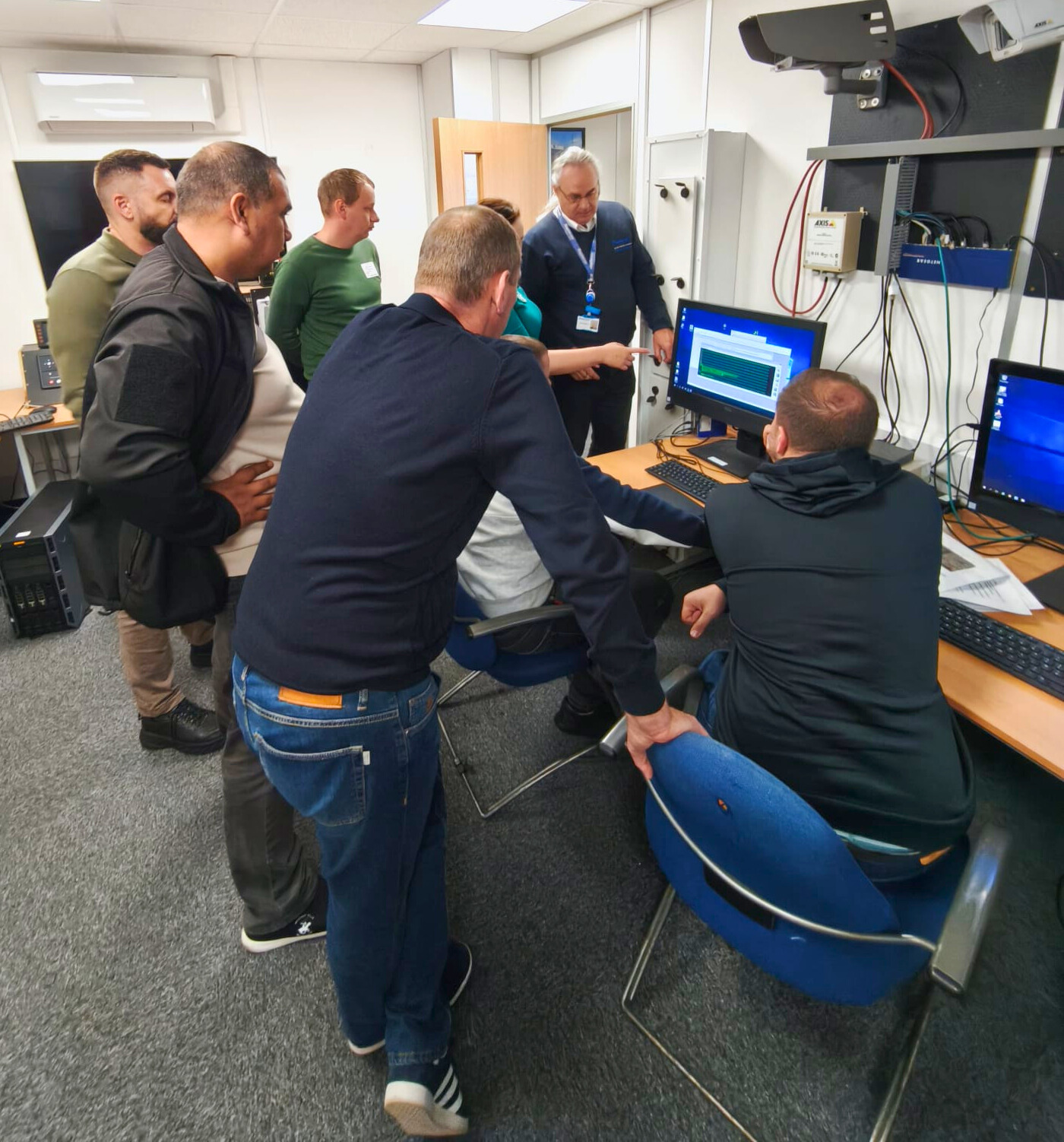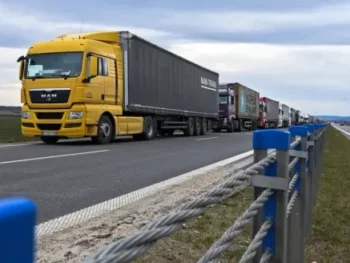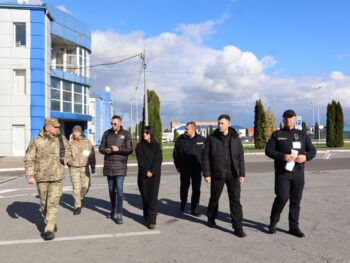Six customs officers from Ukraine have completed a week-long technical training at the Rapiscan Systems factory in Stoke-on-Trent, United Kingdom. The training, held on 15–19 September 2025, was organised by the EU-funded EU4IBM-Resilience project, implemented by ICMPD, and marked the final stage in a series of courses aimed at ensuring Ukrainian officers can independently operate and maintain modern mobile cargo scanners deployed at the country’s busiest border crossing points.
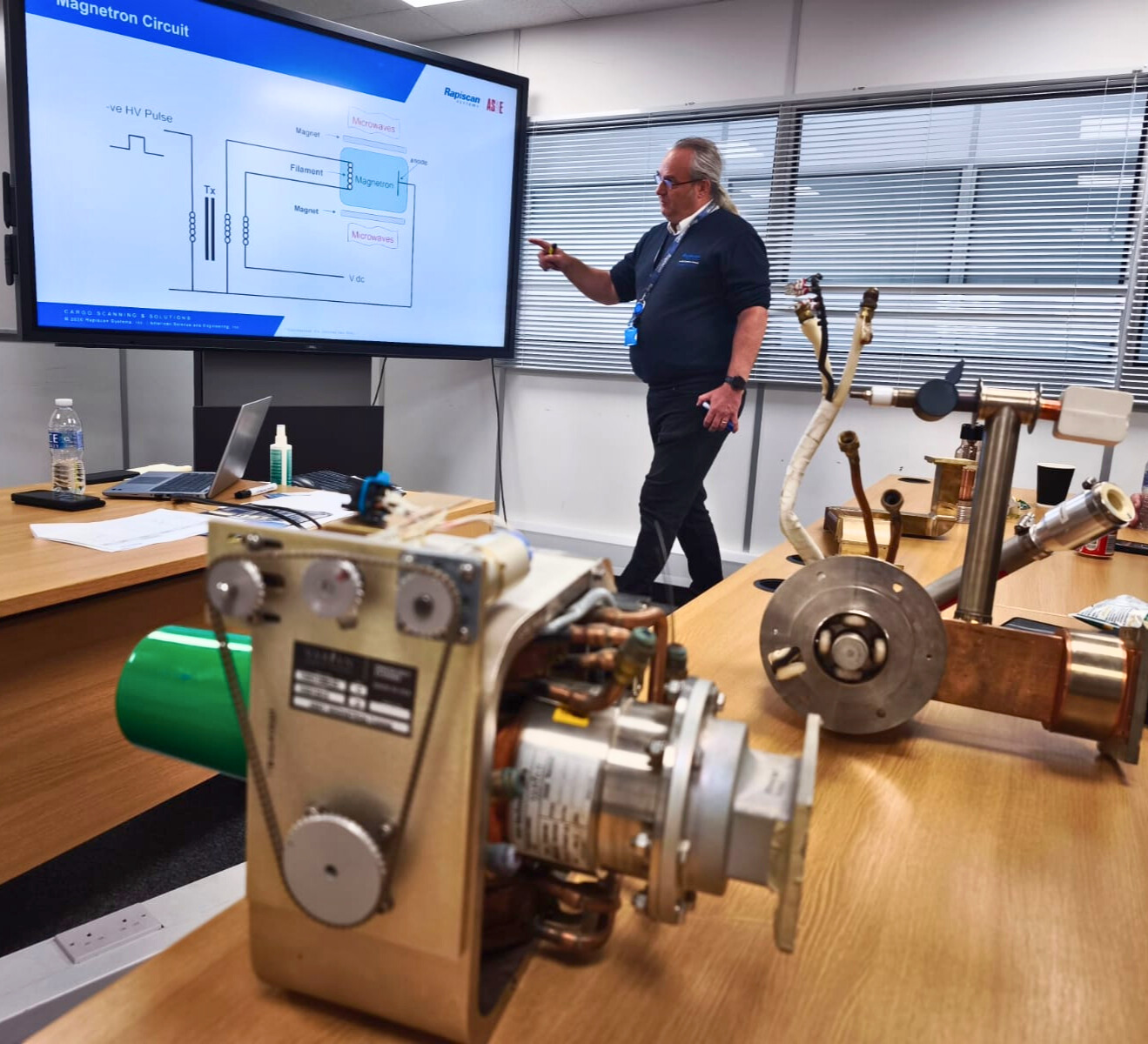
From operation to maintenance
The Level 1 & 2 Cargo Maintenance Course combined classroom lessons with extensive practical sessions. Under the guidance of Kevin Williams, Senior Technical Trainer at Rapiscan Systems, participants learned to perform preventive maintenance, troubleshoot technical faults, replace key parts, and apply safety procedures. By the end of the training, all officers demonstrated their new skills and received maintenance certificates that confirmed their new qualifications.
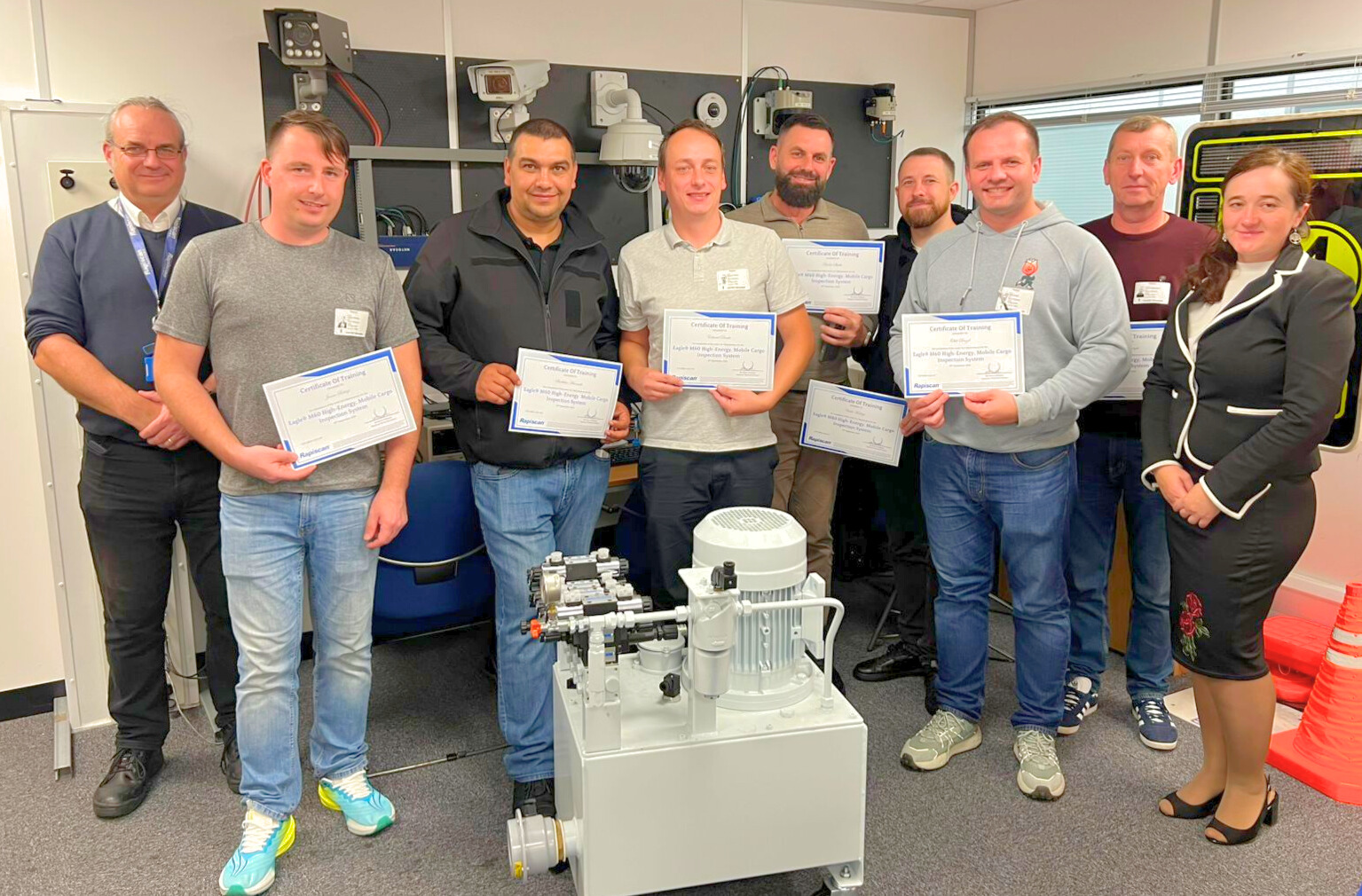
“Our goal is not only to deliver modern scanning systems but also to make sure that Ukrainian customs officers have the knowledge and confidence to keep them running smoothly,” said Vyacheslav Toporov, EU4IBM-Resilience Project Manager. “By building this expertise, we reduce equipment downtime and strengthen self-reliance at the border.”
A comprehensive training effort
This course built on earlier sessions that took place in Ukraine earlier in 2024 and 2025. Customs officers at border crossing points Chop, Krakivets, and Yahodyn had already undergone five days of operator training, during which they focused on deploying and using the scanners safely and efficiently. They also took part in two-day image interpretation sessions designed to sharpen their ability to analyse X-ray images, detect concealment techniques, and distinguish between different types of materials. In total, thirty officers completed these programmes. Together, these efforts have considerably expanded Ukraine’s inspection capacity and ensured that the technology is paired with human expertise.
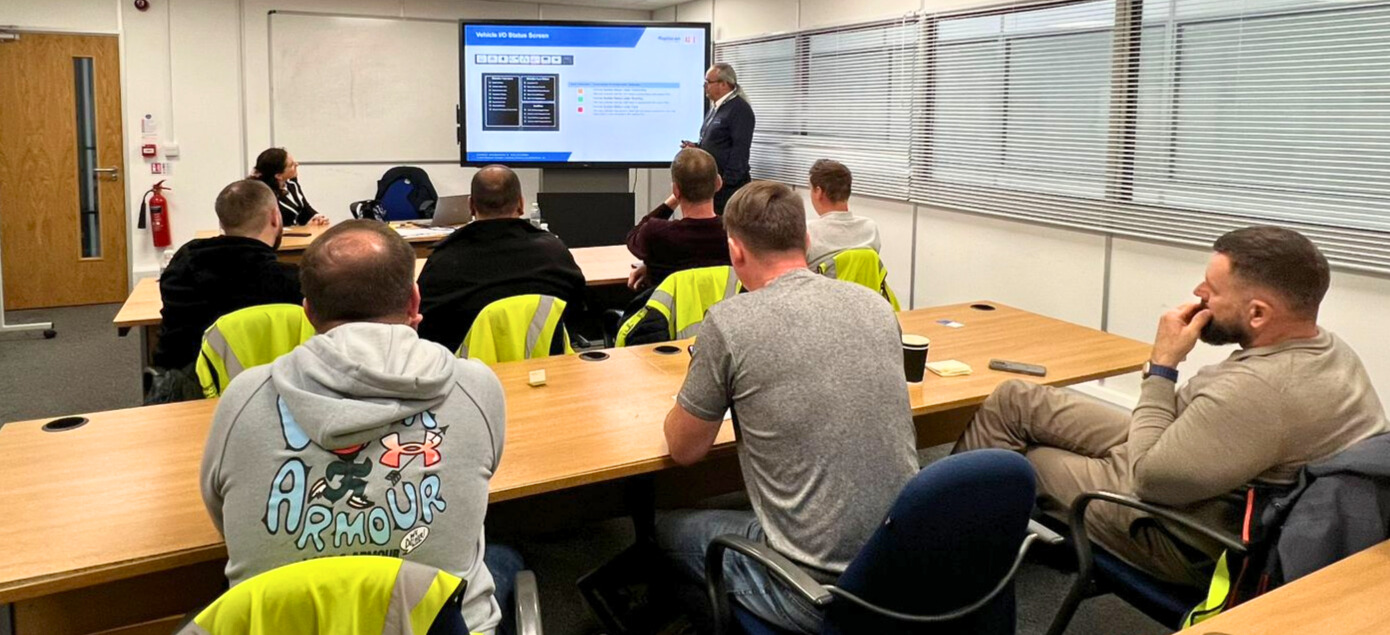
Practical knowledge for real challenges
Vitaliy Modnyi, Head of the Department of Mobile Scanning Systems for Managing Technical Means of Customs Control, SCS,who attended the Stoke-on-Trent training emphasised the practical value of the course:
“The most important part was the exchange of experience. We saw examples that we had never encountered before in Ukraine. For instance, hybrid car batteries can conceal contraband, and cigarettes have been found hidden in wooden pallets or even inside tissues. Such cases show us what to look for and help us stay alert during inspections.”
Trainer Kevin Williams stressed that the programme was tailored to Ukraine’s operational realities: “These officers work at some of the busiest and most complex border points in Europe. The training gave them the tools to ensure scanners remain reliable when they are needed most.”
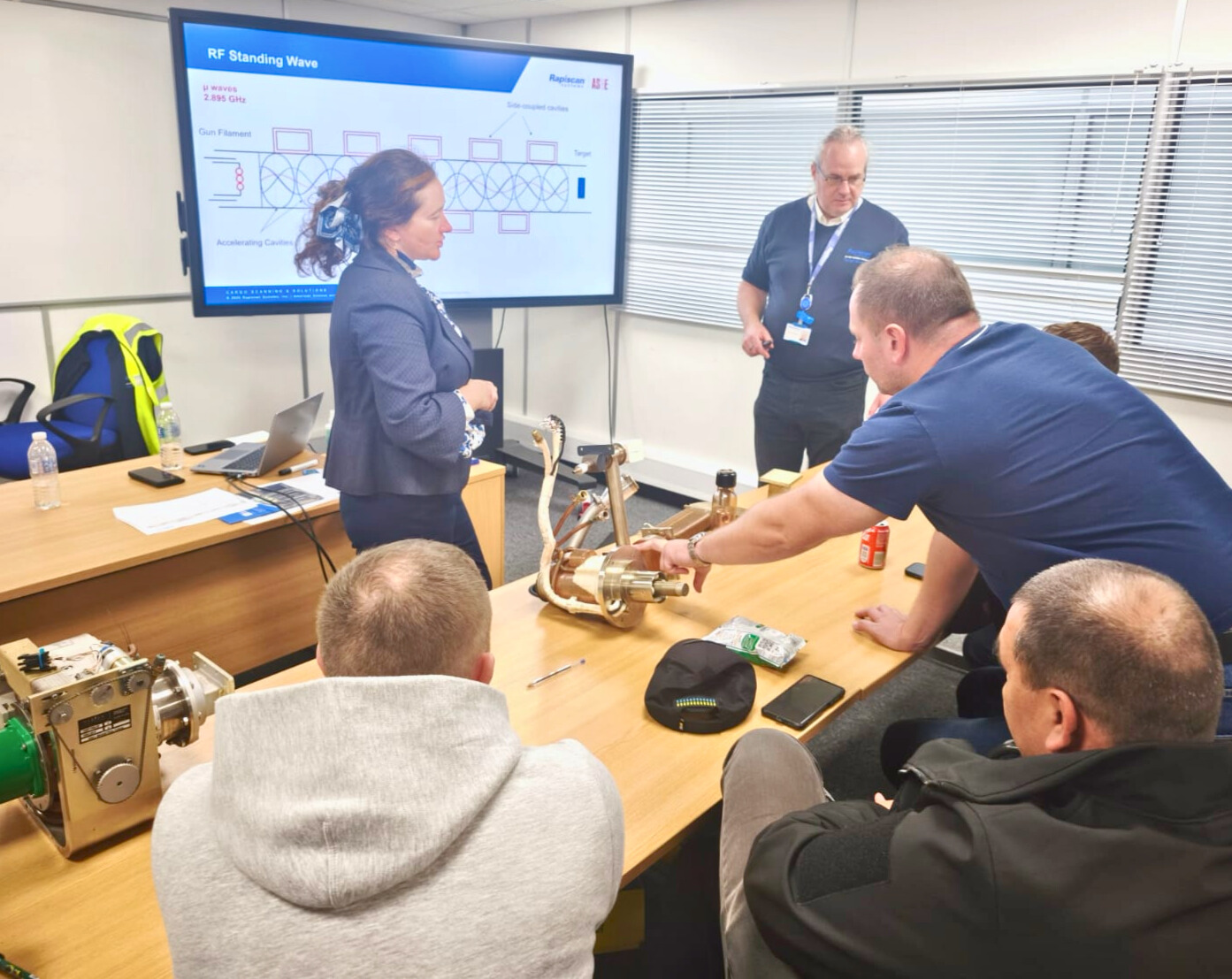
Strengthening resilience at Ukraine’s borders
The EU4IBM-Resilience project has already provided three Rapiscan Eagle M60 mobile cargo scanners, with a total value of about €7.5 million, to border crossing points at Chop, Krakivets, and Yahodyn. Delivered under the umbrella of a larger EU’s “Solidarity Lanes” initiative, these scanners enable customs officers to inspect cargo quickly and accurately while reducing the need for physical checks. Their effectiveness, however, depends not only on cutting-edge technology but also on officers trained to operate and maintain the systems in challenging conditions.
The Stoke-on-Trent training brought together officers from six border crossing points. Alongside Chop, Krakivets, and Yahodyn, which were equipped with EU-funded scanners, the group also included representatives from Uzhhorod, Orlivka, and Porubne, where scanners were delivered with USAID support. This combination underlines the strong international commitment to strengthening Ukraine’s border security and trade facilitation.
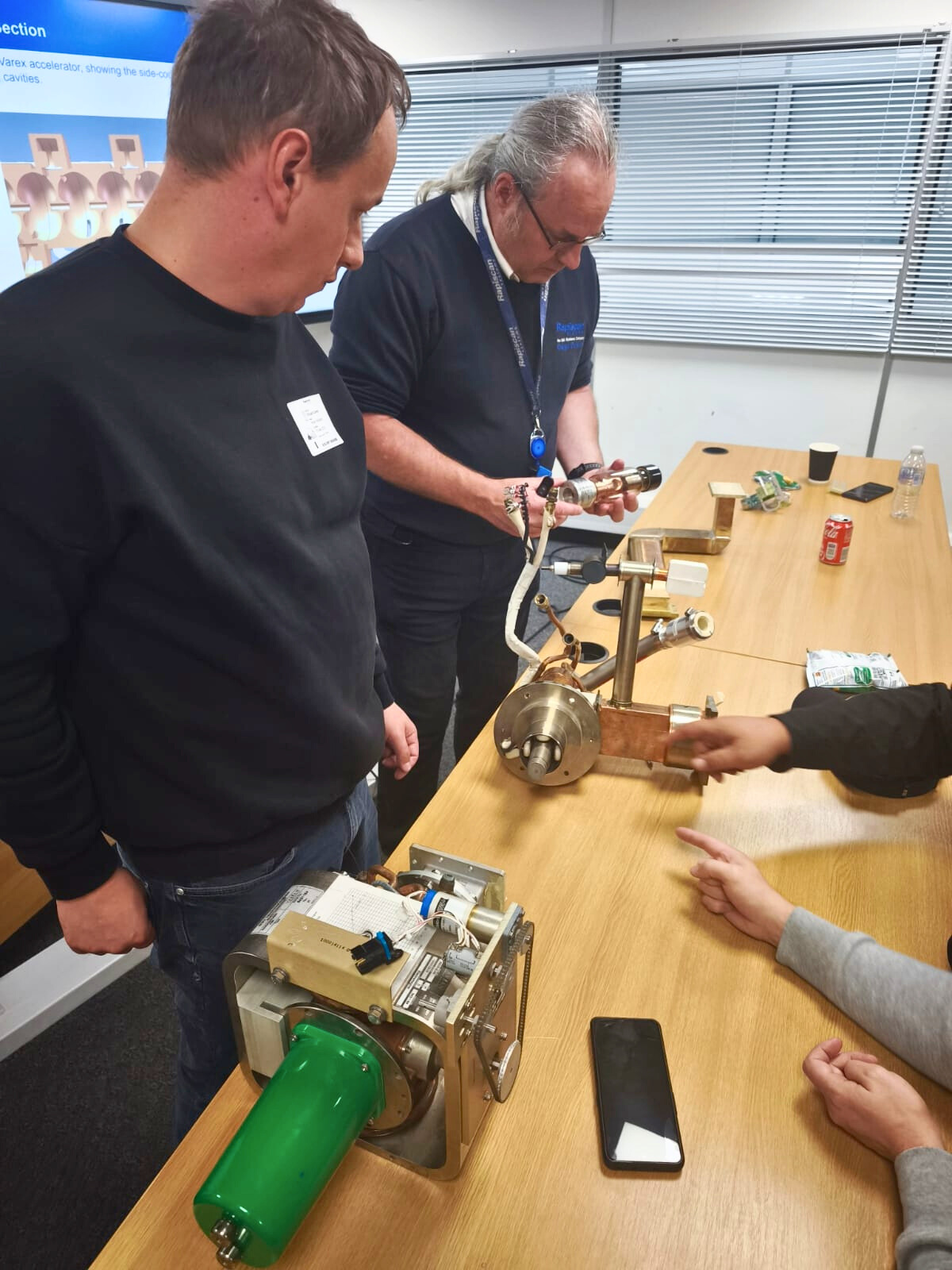
With the maintenance skills now acquired, Ukrainian customs officers can keep scanners functional without having to immediately reach out to external specialists. This self-sufficiency is particularly critical in wartime conditions, when any delay can compromise both security and the smooth flow of trade.
“This initiative combines advanced technology with human expertise, making Ukraine’s borders both more secure and more efficient,” added Vyacheslav Toporov. “It is also a clear example of how the European Union continues to stand with Ukraine, not only in times of war but also in preparing for its European future.”
